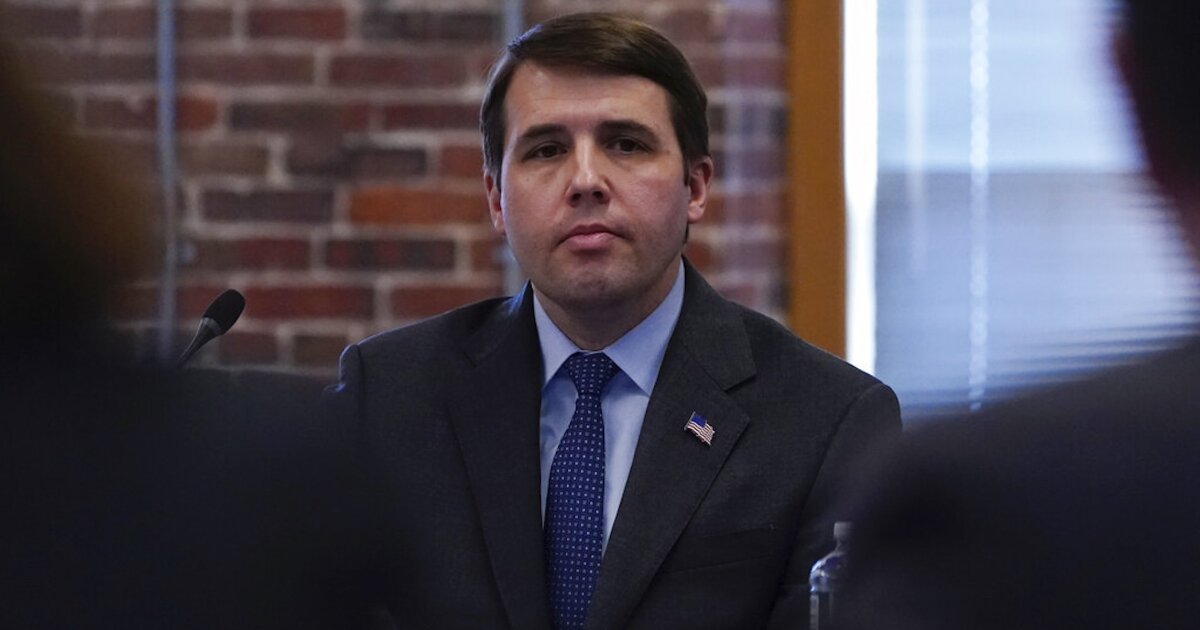

Democrats in competitive congressional races are taking aim at President Joe Biden’s executive action on student loan forgiveness, saying it doesn’t address the underlying problem of the rising costs of education and sidesteps Congress.
Biden announced his plans on Wednesday to eliminate $10,000 of student loans per borrower for those making under $125,000 (or $250,000 for married couples) and $20,000 for Pell Grant recipients.
Rep. Tim Ryan (D-OH), who is in a tight battle against GOP candidate J.D. Vance in the race for Ohio’s open Senate seat, argued that the move helps those already on “a trajectory to financial security” rather than assisting low-income earners.
BIDEN MAY LUCK OUT ON RECESSION BEFORE NOVEMBER BUT STILL HAS TO WORRY ABOUT 2024
“As someone who’s paying off my own family’s student loans, I know the costs of higher education are too high,” he said in a statement. “And while there’s no doubt that a college education should be about opening opportunities, waiving debt for those already on a trajectory to financial security sends the wrong message to the millions of Ohioans without a degree working just as hard to make ends meet.”
Sen. Catherine Cortez Masto (D-NV), who holds a 7-point lead over her Trump-endorsed opponent, Adam Laxalt, in Nevada, said that while she feels action on student debt was needed, the administration should have taken a more targeted approach.
“I don’t agree with today’s executive action because it doesn’t address the root problems that make college unaffordable,” she said. “We should be focusing on passing my legislation to expand Pell grants for lower income students, target loan forgiveness to those in need, and actually make college more affordable for working families.“
Sen. Michael Bennet (D-CO), who holds a slight lead in the polls over Denver business executive Joe O’Dea in Colorado, echoed Cortez Masto’s sentiments.
“The administration should have further targeted the relief, and proposed a way to pay for this plan,” he said.
And Rep. Chris Pappas, who represents a swing district in New Hampshire, said he believes a decision of that magnitude should include input from the legislative branch.
“We all know the cost of higher education is crushing families, and that’s why I’ve supported expanding Pell Grants, affordable community college, and loan forgiveness for those entering vital professions like nursing,” he said in a statement. “But this announcement by President Biden is no way to make policy and sidesteps Congress and our oversight and fiscal responsibilities.”
CLICK HERE TO READ MORE FROM THE WASHINGTON EXAMINER
“Any plan to address student debt should go through the legislative process, and it should be more targeted and paid for so it doesn’t add to the deficit. The President’s plan also doesn’t address the underlying issue of the affordability of higher education, and it is clear that the high cost continues to limit opportunities available to students,” he added.
Top progressives have pressured Biden to act on student loan forgiveness since he took office, with liberal members applauding the move as ”a step in the right direction” but arguing more needs to be done.
“The president’s decision today to reduce the outrageous level of student debt in our country is an important step forward in providing real financial help to a struggling middle class. Today’s announcement to reduce up to $10,000 in student debt for working class Americans and up to $20,000 for Pell Grant recipients will eliminate student debt for some 20 million Americans and reduce debt for some 43 million. The result of this decision is that millions of Americans will now be in a better position to start families, or buy the homes and cars they have long needed. This is a big deal,” Sen. Bernie Sanders (I-VT) said in a statement.
“But we have got to do more,” he added. “At a time of massive income and wealth inequality, education, from pre-school through graduate school, must be a fundamental right for all, not a privilege for the wealthy few. If the United States is going to effectively compete in the global economy we need the best educated workforce in the world, and that means making public colleges and universities tuition free as many other major countries currently do — and that includes trade schools and minority-serving institutions as well.”







